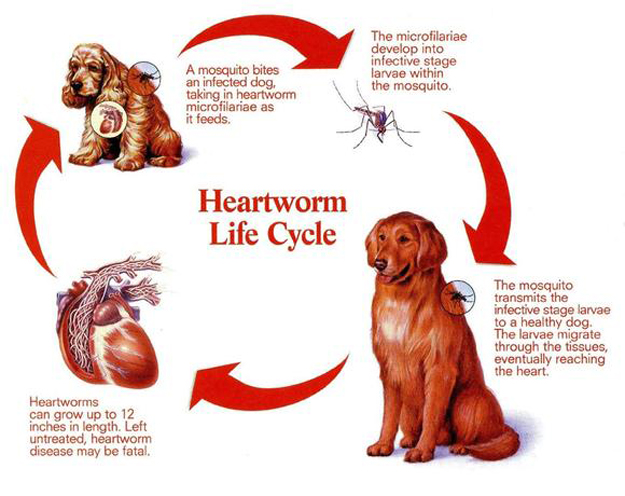VACCINES / SCREENINGS
|
 Vaccination stimulates your pet’s immune system to make protective antibodies against several serious viral and bacterial infections. Vaccinations are essential for your pet’s health and should always be administered in conjunction with a complete wellness examination by your veterinarian. Vaccination stimulates your pet’s immune system to make protective antibodies against several serious viral and bacterial infections. Vaccinations are essential for your pet’s health and should always be administered in conjunction with a complete wellness examination by your veterinarian.
The frequency with which vaccines should be administered varies with age, lifestyle and illness history. Puppies and kittens require a series of vaccinations between the ages of 6 and 16 weeks of age. Adult pets require 1-year or 3-year vaccination depending on type of vaccine, age, and risk of exposure to specific diseases.
Your veterinarian will determine your pet’s most appropriate vaccination schedule.
|
NECESSARY CANINE VACCINATIONS:
|
Canine Distemper (DHPP)
- Protects against 4 viral infections - including parvovirus
- Parvovirus causes severe diarrhea and vomiting - and can be fatal
- Series started at 6-8 weeks of age
- Boosters given every 3-4 weeks until 16 weeks of age
- The last booster in the initial series is good for 1 yr
- Boosters thereafter are good for 3 years
|
|
|
Bordetella (Kennel Cough)
- Protects against Kennel Cough - Highly contagious respiratory disease that creates a painful cough
- Intranasal vaccine
- Dogs that require boarding, grooming or are around other dogs should be vaccinated
- Requires 72 hours for Full Immunization
- Requires a booster annually
|
|
|
Rabies
- Rabies is a real issue in Northern New York (Rabies Map)
- Every year we have animals test positive for rabies
- Required by New York State for ALL pets 12 weeks of age and older
- Initial vaccine is good for 1 year
- Booster vaccine is good for 3 years
|
|
|
Lyme
- Lyme disease is transmitted by ticks
- Vaccination is necessary for pets in our area (Lyme Map)
- Lyme disease causes fever, lethargy and painful joints
- Vaccine series can be started as early as 9 weeks of age
- Initial vaccine needs to be boostered in 3-4 weeks
- Annual booster required once the initial series is finished
|
|
NECESSARY FELINE VACCINATIONS:
|
Feline distemper (FVRCP)
- Protects against the most common upper respiratory diseases in cats
- These diseases are highly contagious and can cause painful ulcers in the mouth eyes and nasal passages
- The vaccination series is started at 6-8 weeks of age
- A booster is given every 3-4 weeks until the kitten is 16 weeks
- An annual booster is required
|
|
|
Rabies
- Rabies is a real issue in Northern New York (Rabies Map)
- Every year we have animals test positive for rabies
- Required by New York State for all pets 12 weeks of age and older
- Initial vaccine is good for 1 year
- Booster vaccine is good for 3 years
|
|
|
Feline Leukemia
- Can cause cancer and attack the immune system making your cat more susceptible to other diseases
- Leukemia is contagious from cat to cat. It is spread through bites, urine and saliva and can be passed from a mother to her kittens
- Your cat should be tested for previous exposure to the virus prior to vaccination
- Leukemia vaccine is necessary for all cats who spend any time outside
- Vaccination can be started as early as 10 weeks of age
- Booster is given 3-4 weeks after the initial vaccine, and then boostered every 2 years
|
|
SCREENINGS:
For more information, see Parasite Control
For more information on what to bring in for a screening, Click Here
|
Retroviral Screening (Feline)
- Tests for exposure to Feline AIDS and Feline Leukemia
- Both of these viruses attack the cat's immune system and make them more susceptible to other diseases
- These viruses are transmitted from cat to cat and can be spread from a mother to her kittens
- An initial test should be done on all cats
- Cats that spend anytime outside should be vaccinated for feline leukemia
|
|
|
Blood Parasite Screening (Canine)
- Screens for exposure to heartworm parasite, which is transmitted by mosquitoes
- Screens for exposure to 3 tick borne diseases: lyme, erlichia and anaplasma
- Testing is required annually
- Early detection of these diseases is crucial to successful treatment
|
|

|
|
|